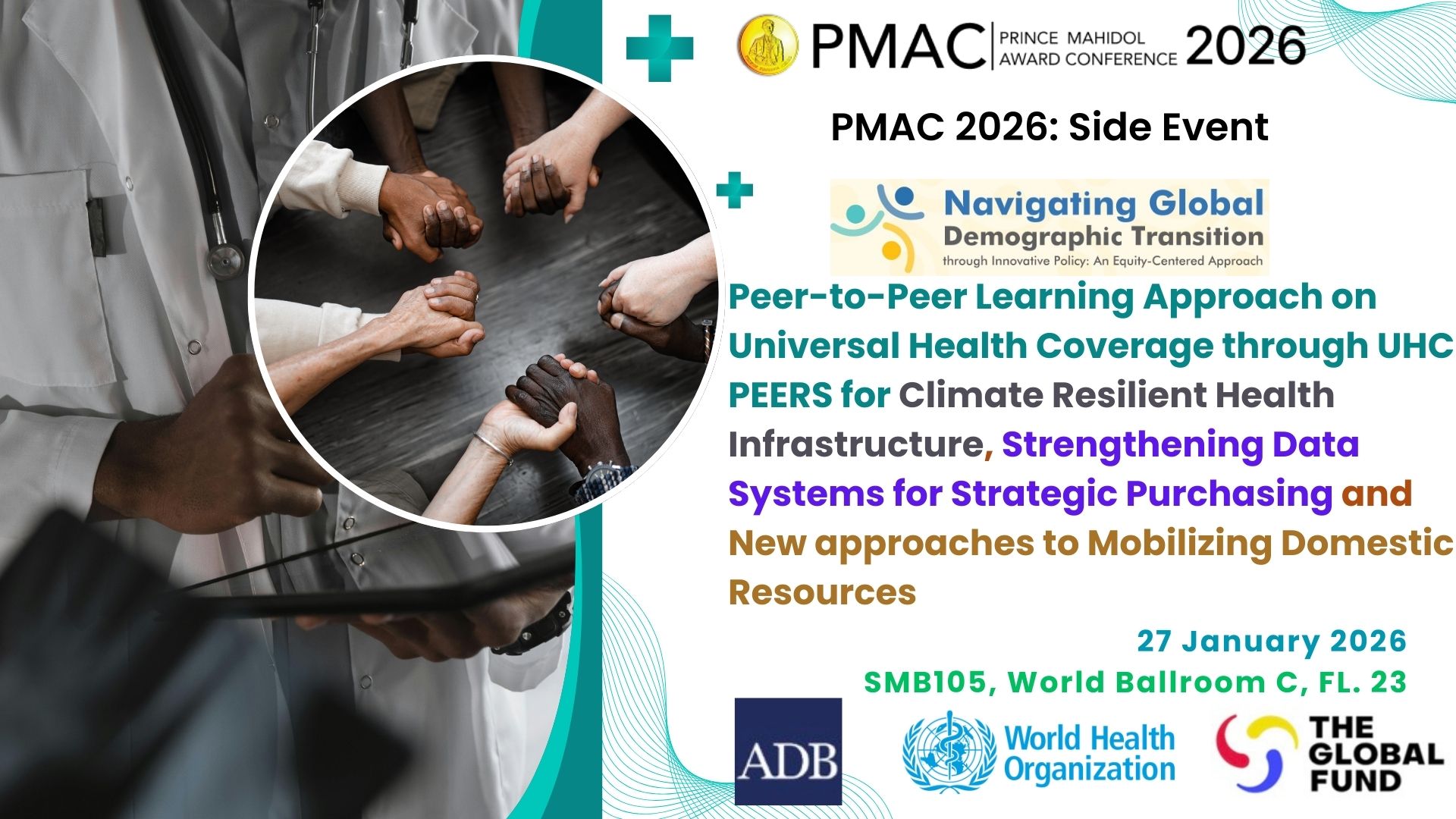Side Meetings
SMB105
Peer-to-Peer Learning Approach on Universal Health Coverage through UHC PEERS for climate resilient Health Infrastructure, strengthening data systems for strategic purchasing and new approaches to mobilizing domestic resources
27
Jan
- Asian Development Bank
- World Health Organization
- Global Fund
- UHC PEERS

ADB has launched creation of a peer to peer Network on UHC called UHC Practitioners and Experts knowledge Exchange and Resources (UHC PEERS). The aim of this initiative is to create “A network of practitioners and policymakers from developing member countries (DMCs) and developed countries in Asia and the Pacific who exchange knowledge with each other as peers and co-develop knowledge products that help them to achieve and sustain UHC”.
This session will bring together countries from the Asia-Pacific region to share and learn from each other on specific topics. Three important topics have been identified for this sharing and learning.
- Climate resilient health infrastructure
- Health Financing Meets Digital Data Intelligence: Advancing Strategic Purchasing in Asia
- Unlocking Resources for UHC: New approaches to Mobilizing Domestic Resources
At the completion of the session
- Participants will be able to understand and appreciate the concept of peer-to-peer learning through UHC PEERS and identify ways in which they can get involved with this initiative.
- Participants will be able to identify the good practices from countries that are of interest to them and relevant to their contexts
- Improved knowledge of representatives from countries on selected three topics based on the sharing of experiences of select countries and partners
- Development of a plan to learn about these topics from selected countries and what type of facilitation will be required
Main objectives are:
- Explain the concept of UHC PEERS and highlight ways in which it can add value to developing member countries in their journey towards UHC.
- Bring developing countries, development partners, and academic institutions together to share their experiences, challenges, best practices, and innovations with each other on specific topics.
- Learning from the experiences, insights, best practices, and challenges of each other and developing a pathway for using this learning in UHC reforms in their respective countries
- Climate resilient health infrastructure
- Health Financing Meets Digital Data Intelligence: Advancing Strategic Purchasing in Asia
- Unlocking Resources for UHC: New approaches to Mobilizing Domestic Resources

